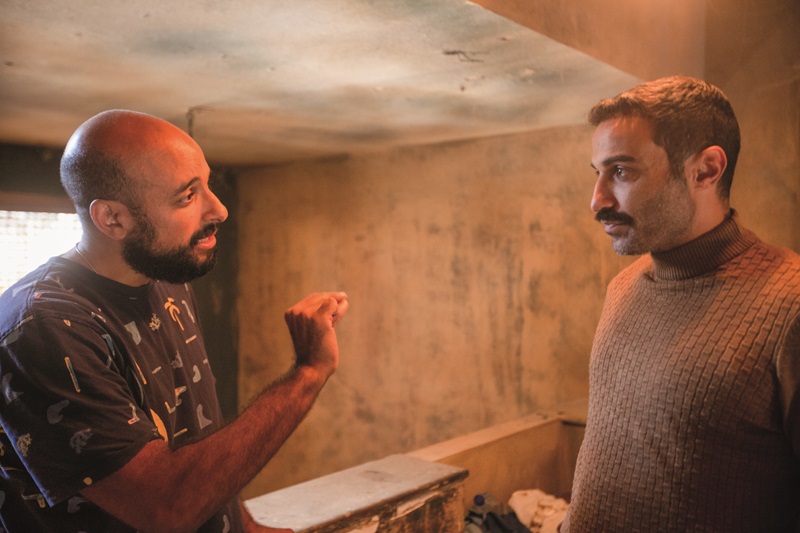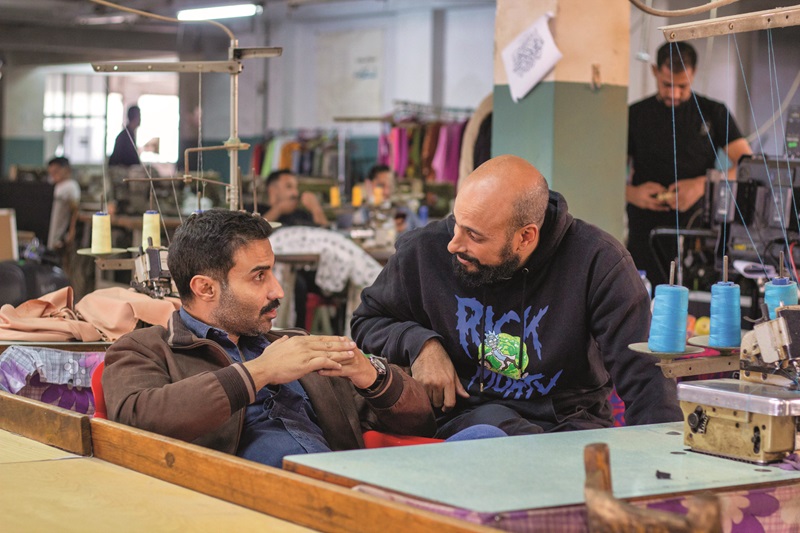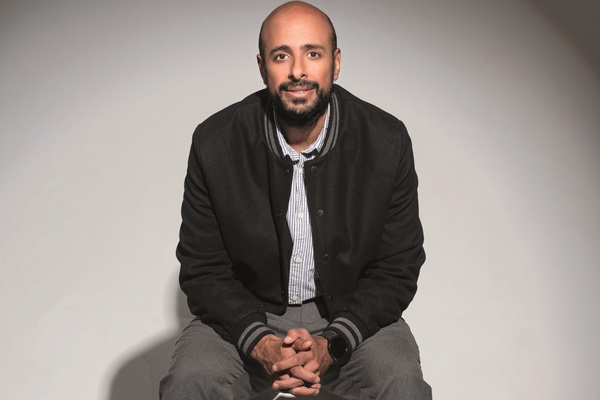Making waves in the digital drama scene, Egyptian filmmaker Tarek Nasr, the creative force behind hits like 'The Giza Killer' on Shahid, opens up to BroadcastPro ME about his content journey, the challenges of staying relevant in a rapidly changing digital landscape and what lies ahead.
For over three years, Egyptian filmmaker and producer Tarek Nasr and his team delved into the deep, dark, grisly world of Gaddafi Farag, meticulously researching and sifting through his background to understand what had made the soft-spoken, religious Egyptian turn into the ‘Butcher of Giza’. Nasr then crafted the real-life tale of the horrific psyche behind Farag’s gentle facade, how after careful planning he executed his close friends and family, and how time after time he evaded the authorities.
Within a week of the series’ release in summer last year, Safah El Giza (The Giza Killer) kept viewers glued to their screens, gripping an entire nation and the region. The eight-part mini-series, which chronicled the most notorious serial killer in modern Arab history, was the most-watched on Shahid, MBC’s regional streaming platform.
Arrested in 2020, Gaddafi Farag was masterfully portrayed by Ahmed Fahmy, popularly known for his comedic roles. The series also starred Rakeen Saad and Basem Samrah, among other well-known contemporaries.
“It was among the most successful Shahid Originals ever,” says Nasr, the mastermind behind the queasy saga. “I worked on this for a few years and took a lot of the learnings from my previous experience producing and creating content online. Working on online shows means it’s a small team, you get a chance to work on everything yourself, and when you expand the team and your production, you have a decent understanding of how everything works individually.”

From a creative standpoint, Nasr had a team of young, up-and-coming writers exploring the genre. Of all the stories made available, Farag’s seemed the most promising in terms of narrating a story that was true. Creating a script about a serial killer inspired by true events is a rare regional undertaking, only previously seen with Rashash, and took them “roughly two-and-a-half years”.
“We liked the aspect of the killer as an everyday person, as someone you meet in the supermarket,” says Nasr.
To this day, Farag’s neighbourhood reels in shock and disbelief at the gruesome murders he committed. They saw him pray, get medicine and groceries for neighbours and look after his mother. They couldn’t believe the killing stemmed from his hatred of the way his mother treated him.
“It was a crazy situation, and I couldn’t understand the reasoning behind the ghastly mindset. We brought in a psychiatrist to help us comprehend the thought process behind the evil. Somewhere in the killer’s conscience he believed he had caused his mother pain, and so took all her reproach and criticism. The killings may have been a depraved way of getting back at her.”
Before launching The Planet Studios, a regional media studio that creates, produces and distributes filmed entertainment. Nasr’s first foray into filmmaking was an online web series way back in 2012.
“When we started producing online content over ten years ago we started off with a few bad online series initially, but soon after we were able to create a few hits with a strong regional following online. Then streaming platforms emerged in the region and we began to shift our focus.
“We produced SNL-like comedy sketch shows including Salizon for YouTube, Shahid, Viu and OSN, and then Shakeb Rakeb for Al Hayat TV, and the content did really well. At that point, we decided to start a company focused purely on premium content, films and series, and that was how The Planet Studios was launched in 2019.
The Giza Killer was a good start to where we want to go – to be doing content that is authentic and local, but can travel. The Turks and the Indians are much better than us Arabs at exporting content. Indian content goes everywhere, it was a big sub-culture in Egypt in the ‘80s and ‘90s, it was mainstream, there was always a Bollywood film playing in the cinemas, and the big stars of the time are known to this day. Indians do a better job at exporting content, and I want to do that with Arabic content.”

Nasr is working closely with streaming platforms to create quality content and has a few deals under wraps. “We are trying to balance, not taking too much on so we can focus on producing good-quality work. I don’t want to be pushing out four or five series a year that are not up to the standard; that would be a disaster.”
Creating good content that’s commercially viable is relevant in terms of managing finances. “The Giza Killer was a high-budget production. There were 200 people on set and we learned that each one had a micro role to play. If you look at premium long-form productions in Europe or the US, it’s a smaller team working than it is in Egypt or the Middle East. Some working styles are inherent to the region and I didn’t want to break that cycle on my very first production, but we will work with less for the next.”
Whether selling a series as an acquisition or working on originals, most platforms work in the same manner, where the creator agrees to sell a concept and is commissioned to produce it. Financially, the originals are a good starting point, but for any production company a mix is good, says Nasr – a few originals, a few series that are acquisitions and a few films.
Coming from an industry that represents a significant slice of Arab cinema, creative endeavours are backed in the real sense of the term, says Nasr: “I’m lucky I come from Egypt, where we have been able to make movies and films that can be identified with the masses.”
He and his team have just completed shooting on their first film, The Search for the White Dress, co-produced with Egyptian film production house Film Clinic and helmed by the renowned Mohamed Hefzy.
“We work as partners, we share the same level of commitment, creative freedom and understanding. He’s great to work with; we share the same understanding.”
Moving forward, Nasr is working on a co-production with Egypt’s Synergy Films, among other projects with streaming platforms. He feels the big challenge in feature films today is to find good creatives and a pool of fresh talent that is looking to experiment and craft new content: “We transitioned a lot of people from the social media and online world to long-form content, and it was the best decision we made.”
With Egyptian films doing well at the box office, getting the right actor to headline a project is equally important.
“Egypt sees a change of guard in terms of stars and celebrities every 10 or 15 years, and this is where Saudi Arabia is different. They are new so they don’t have many historical stars like we do in Egypt; they can start afresh, which is relevant because we talked earlier about having something local and authentic. Platforms these days are giving opportunities to younger producers like us to take that chance, to crack into the market and to take that shot. Streaming platforms have particularly helped us evolve. And a new generation of motivated filmmakers is ready to break new ground and help keep the industry growing.”
















































































